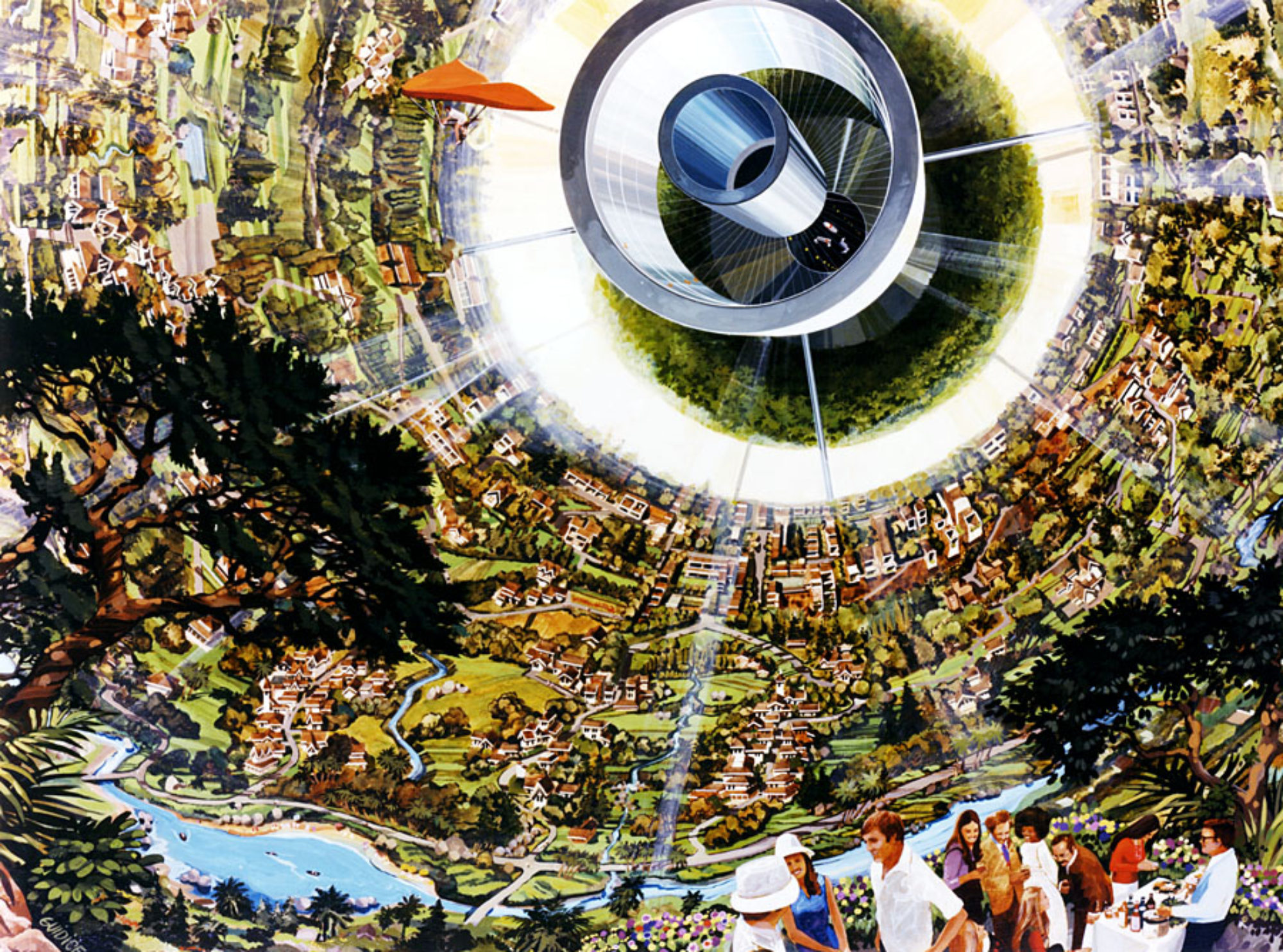
Al Globus has just published a set of cogent responses to objections made by those who question why space settlement should be considered as a goal for humanity. A link to the piece is on his website Free Space Settlement. His analysis first defines what space settlement is, then why it should be pursued and finally refutes point by point, arguments against the endeavor.
Globus positions the case for space settlement around surviving and thriving. Surviving centers on dispersing humanity’s eggs outside of Earth’s basket as a hedge against the risk of catastrophic threats such as “…climate change, major asteroid hits, supervolcano eruptions, nuclear war, pandemic, nearby supernova, and technology run amok.” Even if humanity does survive these potential hazards, in about 5 billion years our sun will transition to a red giant making life on Earth uninhabitable. Clearly our future on the home planet is not assured forever. At current population growth rates, we will have exhausted Earths resources long before then.
Thriving recognizes that expanding into space is the next step in human evolution. Globus reminds us that “…living things want to grow and expand, to thrive, not simply exist.” By settling space “…resource wars are unlikely and unnecessary because our Sun provides billions of times the energy used on Earth and the asteroids provide enough material to make new orbital land hundreds of times greater than the surface area of the Earth.”
To the objection that space is too expensive and that funds would be better spent on Earth, there are two talking points. First, it is always prudent to allocate a small percentage of outlays on planning for the future. NASA’s funding in 2020 was less then 1/2 of a percent (0.48%) of total US expenditures. The US spends quite a bit more on social programs so this argument is very weak. Second, the benefits we receive from space activities in our economy pay significant dividends. SSP has covered the return on space investments and the value of space infrastructure previously.
The next general category of objections falls under “It Can’t Be Done” such as farming in space is not feasible, radiation levels are too high and weightless conditions are intolerable for humans. Globus easily addresses each concern with technological solutions well represented on SSP’s ancillary pages.
An interesting set of protestations are described as “Power Plays” raising the specter of space wars, settlements attacking Earth or cult factions taking over space settlements. And there is the ominous possibility of “Deudney threats” as described in Daniel Deudney’s negative prediction of our space future in his book Dark Skies: Space Expansionism, Planetary Geopolitics, and the Ends of Humanity”. Globus handled these objections quite well and links to his critique of the book in the The Space Review.
Other miscellaneous complaints by doubters are addressed easily by Globus. His talking points are valuable tools to be used in persuasive dialogs with those who may be uninformed on the promise of space development. They should help in building consensus toward moving peacefully out into the solar system and establishing prosperous settlements throughout the galaxy.
